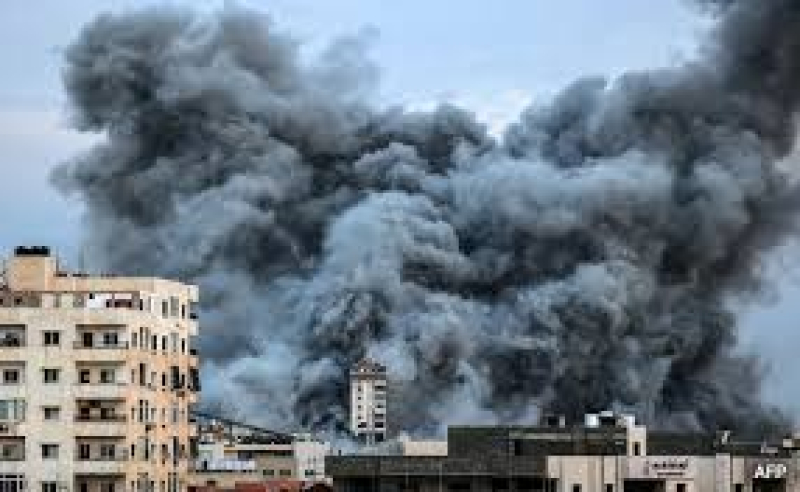- Body of Osman Hadi Returns to Dhaka From Singapore Late |
- Fakhrul condemns attacks on media, calls for unity, justice |
- 2 cops among 4 hurt in clash outside Indian Assit H.C. in Ctg |
- Inqilab Moncho urges people to avoid violence |
- Hadi’s death: Prothom Alo, Daily Star offices set afire |
I'm destroyed': UN envoys meet victims of Gaza war

UN Security Council ambassadors travelled to Egypt Monday to meet Gazan victims of the war between Israel and Hamas, days after the United States blocked a ceasefire resolution.
The informal one-day trip organised by the United Arab Emirates and Egypt came amid a spiralling humanitarian crisis in war-torn Gaza, described as a "graveyard" by United Nations Secretary-General Antonio Guterres.
Around a dozen ambassadors took part from countries including Russia and Britain.
But the US, which vetoed the Security Council resolution calling for a ceasefire on Friday, did not send a representative and neither did France.
The envoys visited a hospital in El-Arish near the Rafah border crossing with Gaza, treating people who had been evacuated from the conflict.
Among the people they met was Wafaa Asaad, a 27-year-old from Gaza who was heavily pregnant when her house was hit by an Israeli strike, killing her husband and injuring her two daughters.
She was evacuated to Egypt for medical treatment and had an arm and leg amputated, but miraculously managed to give birth just hours after crossing the border, her sister Alaa told AFP.
"Our message to the UN is we want the war to stop," Alaa said, her newborn niece laying on a bed beside her.
Ecuador's envoy Jose de la Gasca told AFP he was "destroyed" by the visit to the hospital.
"I just met a young mother who lost a kid and has another little girl who is wounded," he said.
"I dont ever want to see again what I have just seen. It's horrible."
The diplomats were later due to visit the Rafah crossing, the only gateway into Gaza.
Departures via the crossing are tightly controlled, with only foreign nationals and severely wounded people allowed to leave Gaza in most circumstances.
- 'Lack absolutely everything' -
Speaking at the start of the trip, UAE envoy Lana Nusseibeh said the trip was not official Security Council work, and members were taking part on their own "national and personal" initiatives.
Philippe Lazzarini, head of the UN's Palestinian refugee agency UNRWA, briefed the envoys on the humanitarian situation before he headed to Gaza for his third visit since the start of the war in October.
There is "deep frustration, disappointment and some outrage... (that) we can't even reach a consensus for a ceasefire," Lazzarini said.
"There is no real safe place in the Gaza Strip. Even the UN premises currently hosting more than one million people have been hit," he added.
"Hunger is prevailing in Gaza. More and more people haven't eaten for one day, two days, three days... people lack absolutely everything."
The war was triggered when Hamas, the Palestinian group that runs Gaza, carried out the deadliest-ever attack on Israel on October 7, killing 1,200 people, according to Israeli figures, and taking about 240 hostages back to Gaza, reports BSS.
Israel has responded with a military offensive that has reduced much of Gaza to rubble and killed at least 17,997 people, mostly women and children, according to the Hamas-run health ministry.

